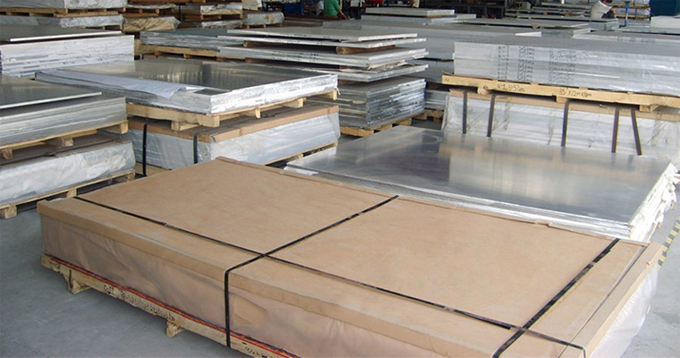Characteristics of 5052 aluminum plate for refrigerator and liquefied gas transport vehicle:
The 5052 aluminium plate is used more and more in refrigerated trucks and liquefied gas transporters. Aluminum is different from steel in that it has no low temperature brittleness. When the temperature decreases, the strength and plasticity of aluminium and its alloys increase while the temperature decreases, so the aluminium alloy becomes a good material for manufacturing low temperature equipment.

The advantages of using 5052 aluminium plate in refrigerated vehicle and liquefied gas transport vehicle are as follows:
After using 5052 aluminium alloy sheet plate, the quality of semi-trailer refrigerated truck decreased by 48 kg. Another advantage of using aluminium alloy sheets and profiles to make refrigerated transport vehicles is that aluminium is a clean, harmless and environmentally friendly metal, easy to clean, and not easy to absorb and emit odor. The four walls of refrigerated vehicle are three-layer composite material, the upper and lower layers are aluminum alloy plates, and the middle is insulation material, which has a broad market prospect.
5052 aluminium sheet is the ideal choice for lightweight car body because of its moderate price.
Aluminum alloy 5052 contains nominal 2.5% magnesium and 0.25% chromium. It has good processability, medium static strength, high fatigue strength, good weldability and excellent corrosion resistance, especially in marine environment. It also has low density and excellent thermal conductivity similar to other aluminium alloys.
5052 alloy can be hardened by cold working and can not be heat treated to higher strength. As the alloy aging spontaneously at room temperature immediately after cold working, 5052 alloy aluminium plate manufacturers use stabilization treatment to provide stable performance for all flat rolling mill products. This is usually achieved by stabilizing heat treatment, either at low temperature, or by introducing heat during rolling, which results in the H3x state.
5052 alloys are used in a wide range of atmospheric environments, including food and building applications, as well as many marine environments. Magnesium content is low enough that it will not be affected by stress corrosion cracking, which will affect alloys with Mg content more than 3.5%. Alloy 5052 is also used in consumer electronics shells, laptops and televisions.